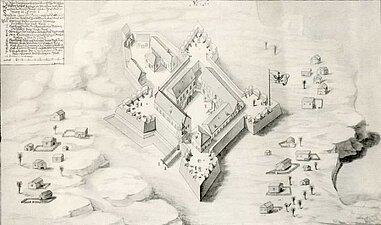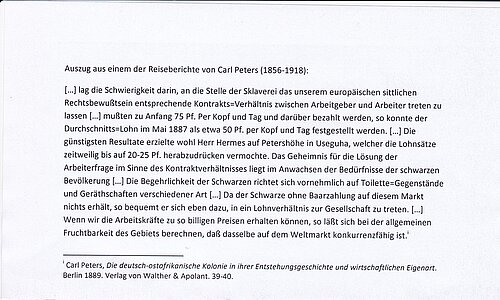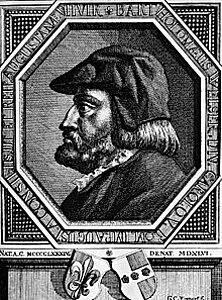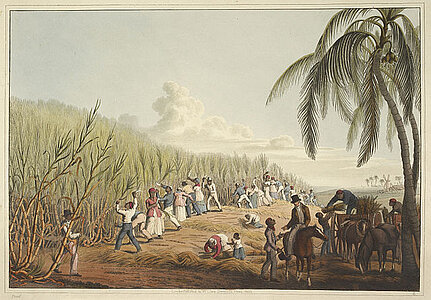German Involvement in the Transatlantic Slave Trade and Colonialism in Africa
For a long time, the transatlantic slave trade and the associated slavery were seen in German perception as a historical event that took place far away in the Americas and the main actors were other countries such as England or France, for example. These countries were involved both through the slave trade itself and through ownership of overseas plantations. Regarding Germany or German-speaking territories, it seems that German players were not involved in any of this.
Thanks to a growing movement in Germany in recent years, which wants to expose the historically grown and still present latent racism in large parts of the population in Germany, the German participation in the history of the "Black Atlantic" is being researched, too.
Slavery in the Americas as Inspiration and Ideological Precursor for German Colonialism
Part of the research deals with a group of travelers who became quite crucial for the colonial German Empire. Carl Peters (1856-1918), a German politician and publicist, serves as an example here. Although he later fell out of favor with the German emperor, he is nevertheless considered one of the most important ideological pioneers for the establishment of the colony of German East Africa. His travel reports initially testify to a critical attitude; he writes that slavery would be immoral and German ethics would not engage in such a bad system; the ethically better Germany would offer a wage system for its workers. However, the extent to which a basic racist attitude toward Africans is expressed here is probably made clear by the excerpt from Peters' report.
Against the "Colonial Amnesia" of Germany - Excerpt from the Blog of Würzburg Students
"Germany did not have much to do with Africa's colonial history. It owned only a few colonies, was there only briefly, and other colonial masters treated the indigenous population much worse than the Germans. Right? No, not true at all. In fact, the German Empire was one of the largest European colonial powers. Some of the problems that the countries concerned face today can be traced back to events that took place during that time. However, Germany's colonial past is only very slowly making its way into the public consciousness. There are many reasons for this, such as the curriculum in German schools that focuses on the Holocaust. Our blog aims to counteract this and contribute to a deeper understanding."
Contact & Links

PD Dr. Heike Raphael-Hernandez teaches and conducts research in American Studies at the University of Würzburg. One of her designated research areas is the historical and contemporary African diaspora. For the project "German Entanglement in the Transatlantic Slave Trade and the Colonial History of Africa" she designed a research seminar on #BlackLivesMatter and human rights in a global context together with students from the University of Würzburg and the University of California at Merced; the students' blog presented here emerged as a result of this seminar.











